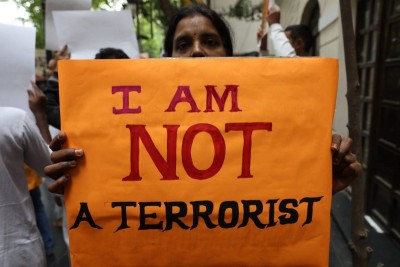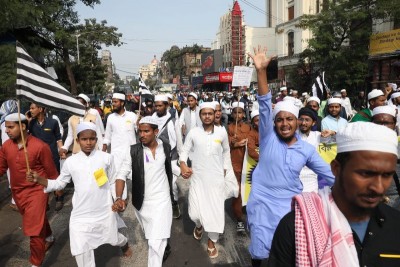 Farmers' Protest
Farmers' Protest
Justin Trudeau backs Indian farmers' agitation, but Canada opposes India on MSP, farm subsidies in WTO
New Delhi/IBNS: Even as Canadian prime minister Justin Trudeau voices his stance against the new farm laws of India and supports the agitating farmers (many of them Sikhs, his vote bank in Canada), the north American country has always vehemently criticised the Minimum Support Price (MSP) and subsidies given by the Indian government to the farmers, media reports said.
Canada also opposes India's domestic agriculture measures aimed at safeguarding food and livelihood for the country's large agrarian population, media reports added exposing a duality in the stance of Trudeau who is apparently driven by the domestic compulsions of Sikh/Punjabi diaspora vote bank politics.
Not long back, in July this year, Canada had joined US, Japan and the European Union to question India on "exceeding the permitted limits on food subsidies given for rice production — also called de minimis levels under WTO norms — to farmers in 2018-19", ThePrint reported referring sources. The de minis level is determined as 10 per cent of the value of food production, according to the report.
“In its responses, India reiterated its compliance with the WTO rules, particularly on the Agreement on Agriculture as well as the Bali Ministerial Decision. It maintained the marketing year 2018-2019 was the only year that it exceeded the de minimis support for rice, which explains why it didn’t notify the public stockholding programme for rice prior to that period,” said the trade official, according to the report cited above.
In order to continue with the food subsidies to farmers, India had to invoke the peace clause which safeguards developing countries from disputes in case they exceed their de minis level.
Canadian Prime Minister Justin Trudeau on Saturday reiterated his support for the rights of farmers in India to protest peacefully, days after his original comment on the issue had triggered a controversy.
Trudeau was quoted as saying by the media: "Canada will always stand up for the right of peaceful protests anywhere around the world. And we are pleased to see moves towards de-escalation and dialogue."
For Trudeau and his Liberal Party, Sikh voters matter in Canadian elections. The votes of the community are also crucial for Conservative Party as well as the controversial Jagmeet Singh's New Democratic Party. The latter has already earned the pro-Khalistan label.
The Canadian High Commissioner was summoned to the Ministry of External Affairs on Friday and informed that comments by the Canadian Prime Minister, some Cabinet Ministers and Members of Parliament on issues relating to Indian farmers constitute an unacceptable interference in our internal affairs.
Such actions, if continued, would have a seriously damaging impact on ties between India and Canada, read a statement issued by the Ministry of External Affairs.
"These comments have encouraged gatherings of extremist activities in front of our High Commission and Consulates in Canada that raise issues of safety and security," read the statement.
"We expect the Canadian Government to ensure the fullest security of Indian diplomatic personnel and its political leaders to refrain from pronouncements that legitimize extremist activism," read the statement.
Canadian Prime Minister Justin Trudeau on Monday said his country will "defend the rights of peaceful protesters".
Trudeau said in an address, "I would remiss if I didn't start by recognising the news coming out of India about the protests by farmers. The situation is concerning and we are very worried about family and friends. We know that's a reality for many of you.
"Let me remind you. Canada will always be there to defend the rights of peaceful protesters. We believe in the importance of dialogue. We've reached out through multiple means to the Indian authorities to highlight our concerns. This is a moment for all of us to pull together."
In July and September, Canada hurled tens of questions on India on its domestic support notifications, its various support programmes and public stockholding programmes (which are meant to benefit the farmers), said ThePrint report quoting the source.
"Some key questions include the potential impact on the global market of India’s high amount of food stocks, and whether India is breaching its support limit for other farm goods, given India recently notified its excessive de minimis support for rice in 2018-2019,” the source further said, the report added.
Jayant Dasgupta, former ambassador of India to the WTO, was quoted as saying in the report: "From 2015-18 Canada and other developed countries tried to question India's food stocks programme. In July 2019, Canada and several other developed countries attempted to take India to WTO dispute settlement body against the MSP provided by the Indian government to farmers."
Support Our Journalism
We cannot do without you.. your contribution supports unbiased journalism
IBNS is not driven by any ism- not wokeism, not racism, not skewed secularism, not hyper right-wing or left liberal ideals, nor by any hardline religious beliefs or hyper nationalism. We want to serve you good old objective news, as they are. We do not judge or preach. We let people decide for themselves. We only try to present factual and well-sourced news.







